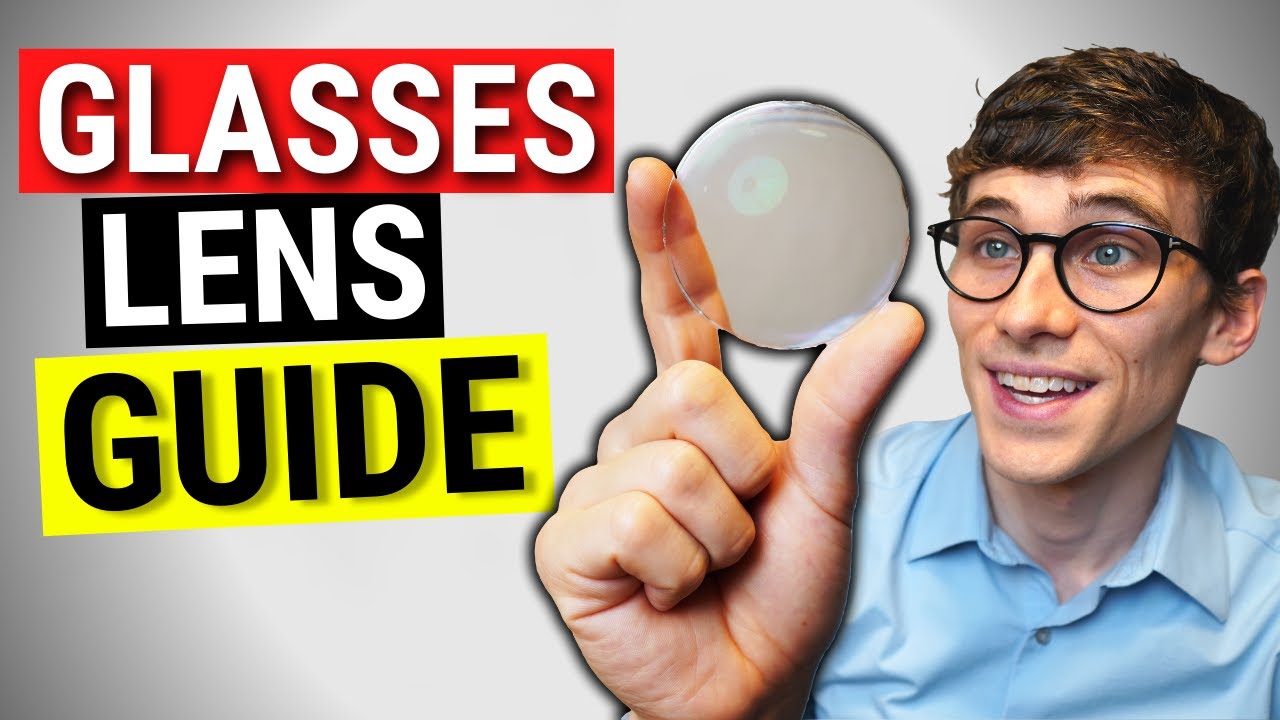Choosing a careerpath is a significant decision that can shape the course of one's life. In this article, we will explore ifis ophthalmic goods a good career path. With countless options available, finding a profession that aligns with one's passions, values, and future aspirations can be a challenging task. One field that has been steadily gaining attention is ophthalmic goods - a specialized area within the healthcare industry focused on providing vision correction products and services.
What Is The Ophthalmic Goods Industry?

What is the Ophthalmology Sector Group?
The Ophthalmic Goods Industry is a sector within the healthcare and optical field that focuses on the manufacturing, distribution, and sale of products related to vision correction and eye care. It encompasses a wide range of goods designed to improve visual acuity and provide solutions for various eye-related conditions. The industry plays a crucial role in helping individuals achieve better vision and maintain their eye health. Some key components of the Ophthalmic Goods Industry include:
- Eyeglasses -This segment involves the production of prescription eyeglasses, including frames and lenses. Various types of lenses, such as single-vision, bifocal, trifocal, and progressive lenses, are crafted to correct refractive errors and provide clear vision.
- Contact Lenses -The industry manufactures and distributes a variety of contact lenses, including soft lenses, rigid gas-permeable lenses, and specialty lenses. Contact lenses are used to correct vision and can also serve therapeutic and cosmetic purposes.
- Sunglasses -The production and sale of sunglasses are a significant part of the industry. Sunglasses not only protect the eyes from harmful UV rays but also serve as a fashion accessory.
- Optical Frames -The Ophthalmic Goods Industry offers a wide array of fashionable and functional optical frames to hold prescription lenses. These frames come in various styles, materials, and designs to suit individual preferences.
- Vision Accessories -This category includes products such as lens cleaning solutions, lens cases, eyewear retainers, and anti-reflective coatings, which enhance the functionality and longevity of eyeglasses and contact lenses.
- Optical Instruments and Equipment -The industry also encompasses the manufacturing and distribution of optical instruments and equipment used by optometrists, ophthalmologists, and opticians in eye examinations and vision care.
The Ophthalmic Goods Industry is characterized by constant innovation and advancements in technology, leading to improved materials, designs, and manufacturing processes for vision correction products. Additionally, the industry is influenced by trends in fashion and consumer preferences, as eyeglasses have become a popular fashion accessory.
What Is An Ophthalmic Lens?

Prescription Glasses Lens Guide: Lens Types and Materials
An ophthalmic lens, also known as an ophthalmic prescription lens or simply a prescription lens, is a specialized lens designed to correct refractive errors and provide clear vision to individuals with vision impairments. These lenses are custom-made based on the specific visual needs of the wearer, as determined by an eye care professional, such as an optometrist or ophthalmologist. Ophthalmic lenses can correct various refractive errors, including:
- Myopia (Nearsightedness) -A condition where distant objects appear blurry, and close-up objects are clear.
- Hyperopia (Farsightedness) -A condition where close-up objects are blurry, and distant objects may be clearer.
- Astigmatism -A condition caused by an irregularly shaped cornea or lens, resulting in distorted or blurred vision at all distances.
- Presbyopia -An age-related condition that affects near vision, making it difficult to focus on close-up objects.
Ophthalmic lenses are typically made of materials like glass, plastic, or high-index materials, each offering different features and benefits. The choice of material depends on the prescription, lifestyle, and preferences of the wearer. There are various types of ophthalmic lenses available, each designed to meet different visual needs:
- Single-Vision Lenses -These lenses have a uniform prescription throughout and are used to correct a single refractive error, such as nearsightedness or farsightedness.
- Bifocal Lenses -Bifocals have two distinct areas of prescription power, usually separated by a visible line. The upper part is for distance vision, and the lower part is for near vision, making them suitable for individuals with presbyopia.
- Trifocal Lenses -Trifocals have three areas of prescription power: distance, intermediate (computer vision), and near, allowing for clear vision at all three distances.
- Progressive Lenses -Also known as no-line bifocals, progressive lenses offer a seamless progression of prescription power from distance to near, providing a more natural vision correction without the visible lines found in bifocals.
- Photochromic Lenses -These lenses automatically darken in response to UV light, providing both vision correction and sun protection.
- High-Index Lenses - High-index lenses are designed for individuals with high refractive prescriptions, offering thinner and lighter lenses compared to traditional materials.
Skills Requirements For The Ophthalmic Goods Industry
Working in the Ophthalmic Goods Industry requires a combination of technical expertise, interpersonal skills, and a commitment to providing quality eye care services. Whether you are pursuing a career as an optician, optical lab technician, or working in sales and marketing for eyewear companies, certain skills are essential for success in this field. Here are some key skills requirements for the Ophthalmic Goods Industry:
- Technical Knowledge -A solid understanding of ophthalmic products, lens materials, frame styles, and various vision correction options is crucial. Professionals in this industry need to be knowledgeable about different lens types, coatings, and how tointerpret prescriptions accurately.
- Customer Service-Excellent customer service skills are essential, as ophthalmic goods professionals interact with patients and customers daily. Being able to listen to their needs, provide personalized solutions, and address any concerns is vital for building trust and ensuring customer satisfaction.
- Precision and Attention to Detail -Ophthalmic goods involve precise measurements and intricate adjustments. Professionals in this industry must pay close attention to detail to ensure that eyeglasses or contact lenses are crafted accurately to match individual prescriptions.
- Communication Skills -Effective communication is critical when explaining complex eye care concepts, lens options, and frame choices to customers. Ophthalmic goods professionals need to communicate clearly and in a manner that is easily understood by their clients.
- Technical and Mechanical Skills -Opticians and optical lab technicians often work with various equipment and tools to fabricate and adjust eyeglasses and lenses. Having technical and mechanical aptitude is essential for efficiently handling these tasks.
- Problem-Solving Skills -Vision correction can be challenging, and sometimes, customers may have specific needs or unique prescriptions. Ophthalmic goods professionals should be adept at problem-solving and finding suitable solutions for individual cases.
- Sales and Marketing -For those working in retail eyewear stores or in the marketing departments of eyewear companies, sales and marketing skills are valuable. Understanding consumer preferences, trends, and effective sales techniques contribute to the success of the business.
- Patience and Empathy -Dealing with customers who may be experiencing vision problems or difficulties adjusting to new eyewear requires patience and empathy. Ophthalmic goods professionals should be compassionate and understanding, especially when working with elderly or first-time users of vision correction products.
- Teamwork -In larger establishments, such as optical clinics or eyewear retail chains, teamwork is essential for providing seamless services. Collaborating with optometrists, ophthalmologists, and other professionals ensures that customers receive comprehensive eye care.
- Continuous Learning -The Ophthalmic Goods Industry is continually evolving with new technologies and products. Professionals need to be open to learning and staying updated with the latest advancements in the field.
Best Paying Jobs In Ophthalmic Goods
The Ophthalmic Goods Industry offers a variety of career opportunities, and the salary for each position can vary based on factors such as experience, location, and level of responsibility. Here are some of the best-paying jobs in the Ophthalmic Goods Industry:
- Ophthalmologists -Ophthalmologists are medical doctors specializing in eye care and surgery. They diagnose and treat various eye conditions, perform surgeries, and prescribe medications. As highly skilled medical professionals, ophthalmologists earn some of the highest salaries in the industry.
- Optometrist -Optometrists are eye care professionals with a Doctor of Optometry (OD) degree. They examine patients' eyes, diagnose vision problems, and prescribe eyeglasses or contact lenses. Optometrists generally have a favorable earning potential, especially in private practice or specialized clinics.
- Optical Engineers -Optical engineers work on the development and design of ophthalmic lenses and optical instruments. They use their expertise in optics, physics, and engineering to improve lens technology and enhance visual performance. Optical engineers often earn competitive salaries due to their technical expertise.
- Optical Lab Manager -Optical lab managers oversee the operations of optical laboratories where prescription lenses are fabricated. They manage lab technicians, ensure quality control, and optimize workflow efficiency. As experienced professionals responsible for production, lab managers can command higher salaries.
- Optical Sales Representative -Optical sales representatives work for eyewear manufacturers and distributors, promoting and selling ophthalmic goods to optical retailers and professionals. Successful sales representatives often receive a combination of base salary and commission, leading to significant earnings.
- Optician -Opticians are trained professionals who interpret prescriptions and fit patients with eyeglasses or contact lenses. With experience and expertise in frame styling and lens selection, skilled opticians may earn competitive salaries, especially in high-end optical boutiques.
- Ophthalmic Medical Technicians -Ophthalmic medical technicians assist ophthalmologists in conducting eye exams and performing various diagnostic tests. Their specialized skills and contributions to patient care can result in respectable remuneration.
- Optical Store Manager -Optical store managers oversee the daily operations of retail eyewear stores. They handle sales, customer service, inventory management, and staff supervision. Experienced store managers in busy locations may earn higher salaries.
How Many Jobs Are Available In Ophthalmic Goods?
Even though there are more than 500 open jobs in the ophthalmic goods business, there is much less competition for those jobs than in any other industry.
The number of jobs available in the Ophthalmic Goods Industry can vary over time and across different regions. The availability of jobs can be influenced by factors such as the overall economy, technological advancements, population demographics, and changes in consumer preferences for eyewear and eye care.
However, the Ophthalmic Goods Industry generally provides a range of career opportunities in various roles, including opticians, optical lab technicians, sales representatives, optical store managers, optometrists, ophthalmologists, optical engineers, and more. Large metropolitan areas and regions with a higher concentration of eyewear retailers and eye care facilities may offer a greater number of job opportunities in this field.
Types Of Ophthalmic Goods Companies
Ophthalmic Goods companies encompass a diverse range of businesses involved in the manufacturing, distribution, and retail of products related to vision correction and eye care. Here are some common types of Ophthalmic Goods companies:
- Eyewear Manufacturers -These companies design and produce a wide range of eyeglasses, sunglasses, and optical frames. They may use various materials, styles, and technologies to create fashionable and functional eyewear.
- Contact Lens Manufacturers -Contact lens manufacturers specialize in the production of soft contact lenses, rigid gas-permeable lenses, and specialty lenses for various eye conditions.
- Optical Lens Laboratories -These companies fabricate prescription lenses based on optometrists' or ophthalmologists' prescriptions. They utilize cutting-edge technology to produce lenses that correct specific refractive errors, including myopia, hyperopia, astigmatism, and presbyopia.
- Optical Retail Chains -Optical retail chains operate multiple eyewear stores across different locations. They offer a wide selection of eyeglasses, sunglasses, and contact lenses, along with vision care services.
- Independent Optical Stores -These are smaller, privately-owned optical stores that provide personalized services and a curated selection of eyewear products. They may cater to niche markets or offer specialized products.
- Online Eyewear Retailers -E-commerce platforms that sell eyeglasses, contact lenses, and related products online. Customers can order prescription eyewear through these websites, and some companies offer virtual try-on tools to help customers choose frames.
- Vision Care Centers/Clinics -These facilities provide comprehensive eye care services, including eye examinations, diagnosis of eye conditions, and prescription of corrective eyewear or contact lenses. They may also offer specialized treatments and surgical services.
- Optical Equipment Manufacturers -Companies in this category design and produce advanced optical instruments and equipment used by eye care professionals, such as autorefractors, retinal cameras, and optical coherence tomography (OCT) machines.
- Ophthalmic Pharmaceutical Companies -These companies specialize in developing and producing pharmaceutical products for various eye conditions, such as glaucoma, dry eye syndrome, and allergies.
- Vision Insurance Providers -Vision insurance companies offer coverage and benefits for eye exams, vision correction products, and eye-related treatments.
- Eyewear Accessories Manufacturers -These companies produce accessories such as eyeglass cases, lens cleaning solutions, lens coatings, and eyewear retainers.
People Also Ask
What Are Ophthalmic Goods?
Ophthalmic goods refer to a range of products related to vision correction and eye care. These include eyeglasses, contact lenses, prescription lenses, sunglasses, optical frames, and various vision accessories.
How To Become An Optician?
To become an optician, one typically needs to complete a formal education program in opticianry, which can be a diploma or an associate degree. After completing the program, aspiring opticians may need to pass licensing or certification exams, depending on their location. Practical training and hands-on experience are also valuable in becoming a skilled optician.
What Is The Difference Between An Optometrist And An Optician?
Optometrists are healthcare professionals with a Doctor of Optometry (OD) degree, trained to examine eyes, diagnose vision problems, and prescribe corrective lenses or medications. Opticians, on the other hand, are trained to interpret prescriptions and fit patients with eyeglasses or contact lenses, based on the optometrist's or ophthalmologist's prescription.
Are Online Prescription Glasses Reliable?
Online prescription glasses can be reliable if purchased from reputable and established retailers. It is crucial to provide accurate prescription information and pupil distance for the glasses to be correctly made. Before making a purchase, it is essential to read reviews, check return policies, and verify the legitimacy of the online store.
What Are Progressive Lenses?
Progressive lenses, also known as multifocal lenses, are eyeglass lenses that offer multiple vision corrections in a single lens. They provide seamless transitions between distance, intermediate, and near vision, eliminating the need to switch between different pairs of glasses for different tasks. Progressive lenses are commonly used to correct presbyopia, a common age-related vision problem.
Conclusion
A career in ophthalmic goods presents a compelling and rewarding path for individuals interested in healthcare, technology, and helping people improve their vision. The increasing demand for vision correction products and services, combined with job stability and diverse career opportunities, offers a promising outlook for professionals in this field. Moreover, the chance to work with cutting-edge technologies and witness the positive impact on patient's lives adds a sense of fulfillment and purpose to the profession.
If you are looking for a meaningful and sustainable career that combines healthcare, innovation, and personal satisfaction, venturing into ophthalmic goods might just be the perfect choice. So, take a closer look, explore the possibilities, and embark on a journey that could lead to a successful and gratifying career in the world of ophthalmic goods.

